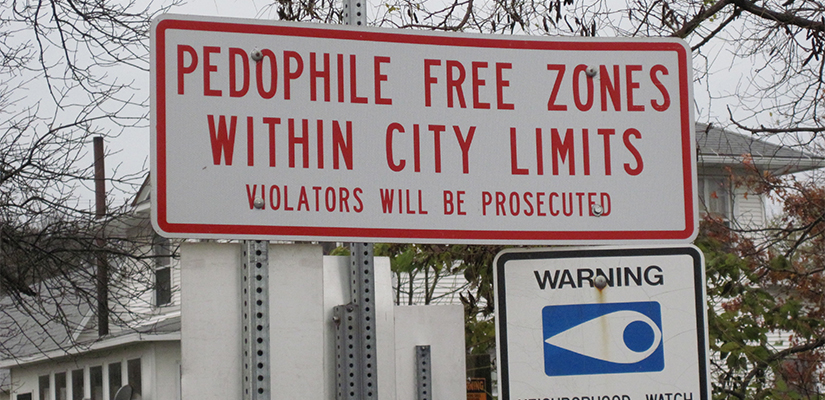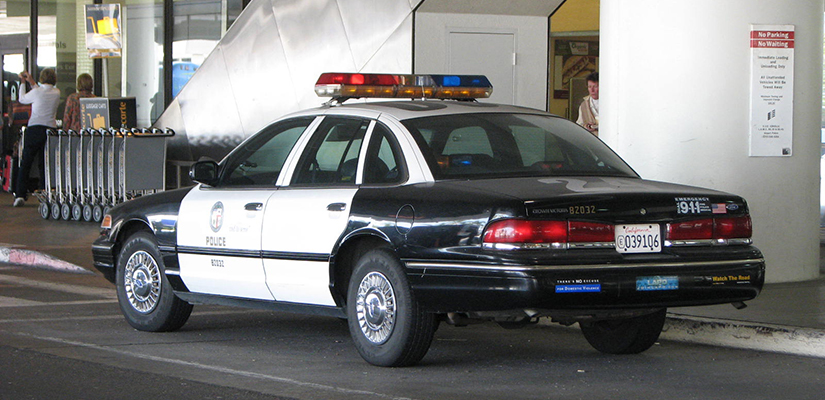Recently, our law firm handled a case where a defendant had been convicted years ago in another state of a sex crime. He was told by the court in the other state to register in that state as a sexual offender. He left that state and moved to California. When he moved to California, he was told by authorities here to register as a sexual offender, which he dutifully did for several years – until he moved to a new address across town and failed to update his registration with the police. The authorities caught up with him and he was arrested and charged with a felony crime of failure to register as a sexual offender. When he came to our firm, he was facing up to three years in state prison for this “crime.”
When the case went to court, our firm made a motion to dismiss the case, arguing that the out of state conviction did not impose upon the client the obligation to register under California law. Our motion papers were so airtight that even the District Attorney agreed that the case should be dismissed. Not only did the District Attorney dismiss the felony charges, but the Court also informed the client that he was no longer obligated to register as a sexual offender in California. This is one of the few criminal cases where a defendant was probably, to a small extent, thankful that he had been arrested because, when his case went to court and was resolved, he was in a better position than he was in before his arrest since the court told him that he no longer has to register as a sexual offender.
If you are currently registering because of an “out of state” sex crime and you want to be relieved of your obligation to register, or if you are charged with failure to register as a sexual offender because you have an out of state sex crime conviction, it is possible that you might be able to avoid further registration obligations, depending upon the nature of the out of state conviction. As you will see, California’s registration statutes are very complex and difficult to apply to out of state convictions. Accordingly, before taking any further action, you owe it to yourself to consult an attorney who knows California’s registration requirements and how they apply to out of state convictions.
California’s sex offender registration statutes are relatively straightforward for people convicted here in this state. For instance, anyone convicted in a California court of rape by force, Penal Code § 216(a)(2), must register as a sexual offender in California. Penal Code § 290(a)(2)(A). People, however, convicted in a California court of having unlawful sex with a person under age 18, Penal Code § 261.5, are not obligated to register in California. Penal Code § 290(a)(2)(A).
But what about a person convicted of a sex crime in a different state? How does California decide whether or not to make them register when different states have such different laws? The analysis is actually not as simple as it seems and as some people might hope. There are actually at least three separate provisions that could apply and that attorneys must be knowledgeable about.
The first is Penal Code § 290(a)(2)(D)(i), which requires registration for any person who was convicted in any court (e.
g., a court out of the state of California) of any crime that, if committed in California would constitute a registerable sex crime. While that may seem simple, the analysis becomes complicated, especially in cases where an out of state criminal statute does not precisely match up with any California statute. For instance, what if the hypothetical state of Euphoria enacts a law, Euphoria Penal Code § 123, that says “anyone who has sex with another person who is under age 18, or who has sex with a person by force, is guilty of the crime of unlawful sex.” Let’s say that a defendant was convicted of violating “Euphoria Penal Code § 123.” Well, if you look at the Euphoria Penal Code section standing alone, it is not clear whether the defendant simply had sex with a person under age 18 (a non-registerable crime in California) or had sex by force (a registerable crime in California). The analysis is complicated by the fact that courts have ruled that in deciding what the offense conduct was (i.e., in determining what the defendant “did” to violate the Euphoria Code section), the California courts may only look to certain documents, and the victim from Euphoria cannot be called as a witness in the California courts to testify as to what the defendant did. So if the paperwork from the criminal court in Euphoria is not clear, courts generally say that the prosecutor cannot look at police reports from Euphoria to fill in the gaps. For the most part, courts are limited to documents in the Euphoria court file that are “reliable” indicators of the offense conduct.
The second provision is Penal Code § 290(a)(2)(D)(ii), which requires any person to register who has been ordered by any other court (e.g., an out of state court), to register as a sexual offender provided that the court found, at sentencing, that the person committed the crime as a result of sexual compulsion or for purpose of sexual gratification. This provision is fairly simple. Here the attorneys must review the court records from the out of state court and determine whether the defendant was ordered to register as a sexual offender, AND whether the sentencing court made the required findings that the crime the defendant committed was committed as a result of sexual compulsion or sexual gratification. In my experience, most sentencing courts will not make such express findings, thereby making this provision one that rarely comes into play.
The third is Penal Code § 290(a)(2)(D)(iii), which requires anyone to register in California if they were convicted of a sex crime in another state, and they would be required to register as a sexual offender while residing in that state, UNLESS the foreign conviction is a crime that is “similar to” indecent exposure pursuant to Penal Code § 314, unlawful sexual intercourse pursuant to Penal Code § 261.5, incest pursuant to Penal Code § 285, sodomy or oral copulation pursuant to Penal Code §§ 286, 288a respectively, provided that the conduct was between consenting adults, or pimping or pandering, pursuant to Penal Code §§ 266h, 266i, HOWEVER, these people would have to register if the out-of-state crime contains all of the elements of a California registerable sexual offense. Breaking this down, if you are convicted of a sex crime in another state, and if you would have to register as a sex offender if you moved back to that state, you have to register in California.
But, if your conviction is “similar to” say, indecent exposure, Penal Code § 314, you do not have to register as a sexual offender in Califonria UNLESS the court compares the elements of the out of state sex crime and determines that it contains all of the elements of a registerable California sex crime. As you can see, this section is very complicated to apply. First you have to determine what the conviction was for, which can be difficult as discussed above, where the out of state statute of conviction does not neatly match applicable California sex crime statutes. Once you make that determination, you have to decide whether the out of state sex crime is “similar to” one of the “exceptions” to the rule cited above, and, if it is, you have to review the statute to see if it contains all of the elements of a California sex crime. This analysis can be tedious and time consuming, since it requires a California lawyer (and/or judge) to familiarize themselves with not only applicable California law (which the lawyers and judges here presumably know anyway) but also with the law of another state, which lawyers and judges here do not know and do not deal with on a regular basis.
As you can see, deciding whether a person with an out of state sex crime conviction must register in California is not an easy task, and requires lawyers who are familiar with not only California law, but who also have the ability to research the laws of other states and apply them to California law. Accordingly, if you are either being told to register as a sexual offender in California because of an out of state conviction, or if you are being prosecuted because you failed to register as a sexual offender because of an out of state conviction, you should contact our law firm immediately to speak to a knowledgeable attorney who can help defend you.



